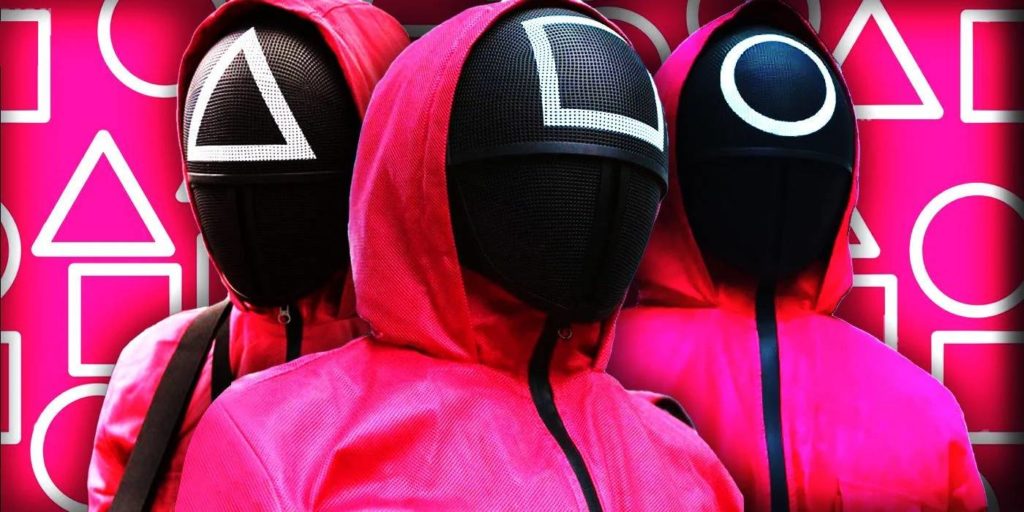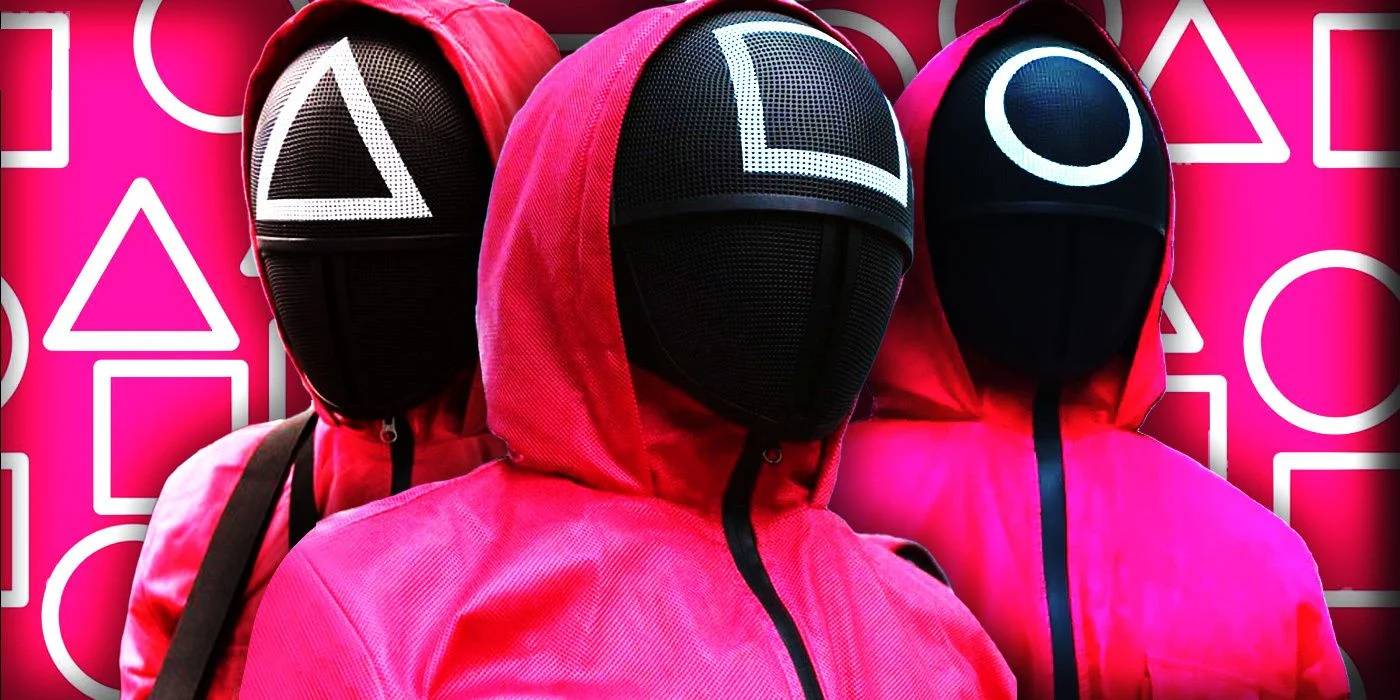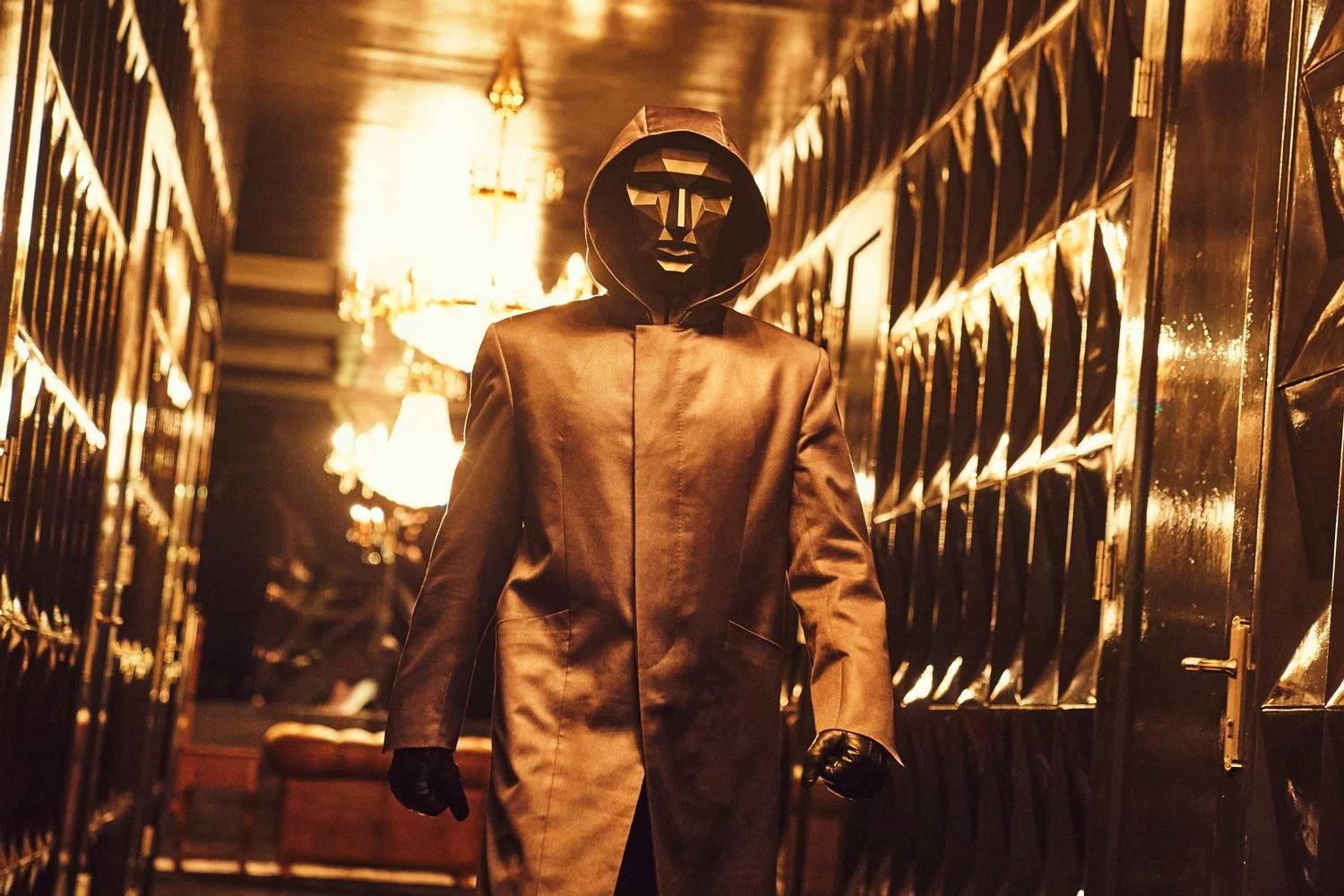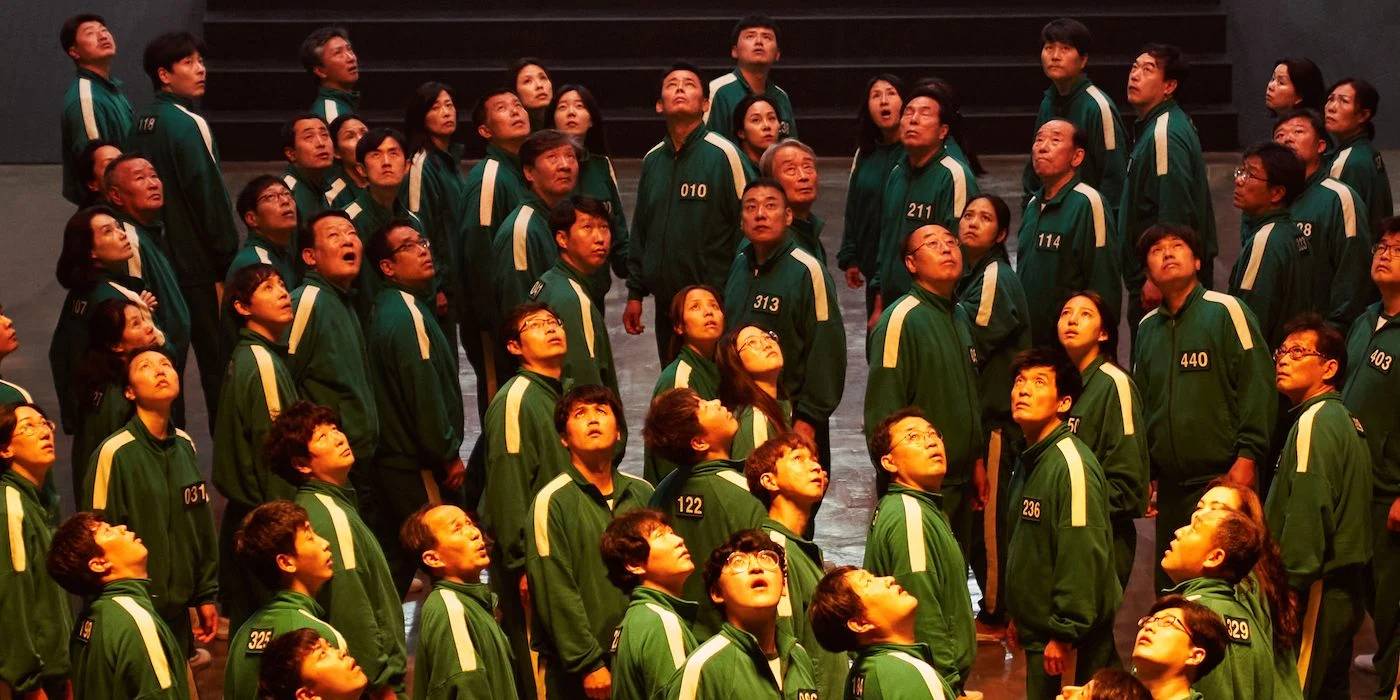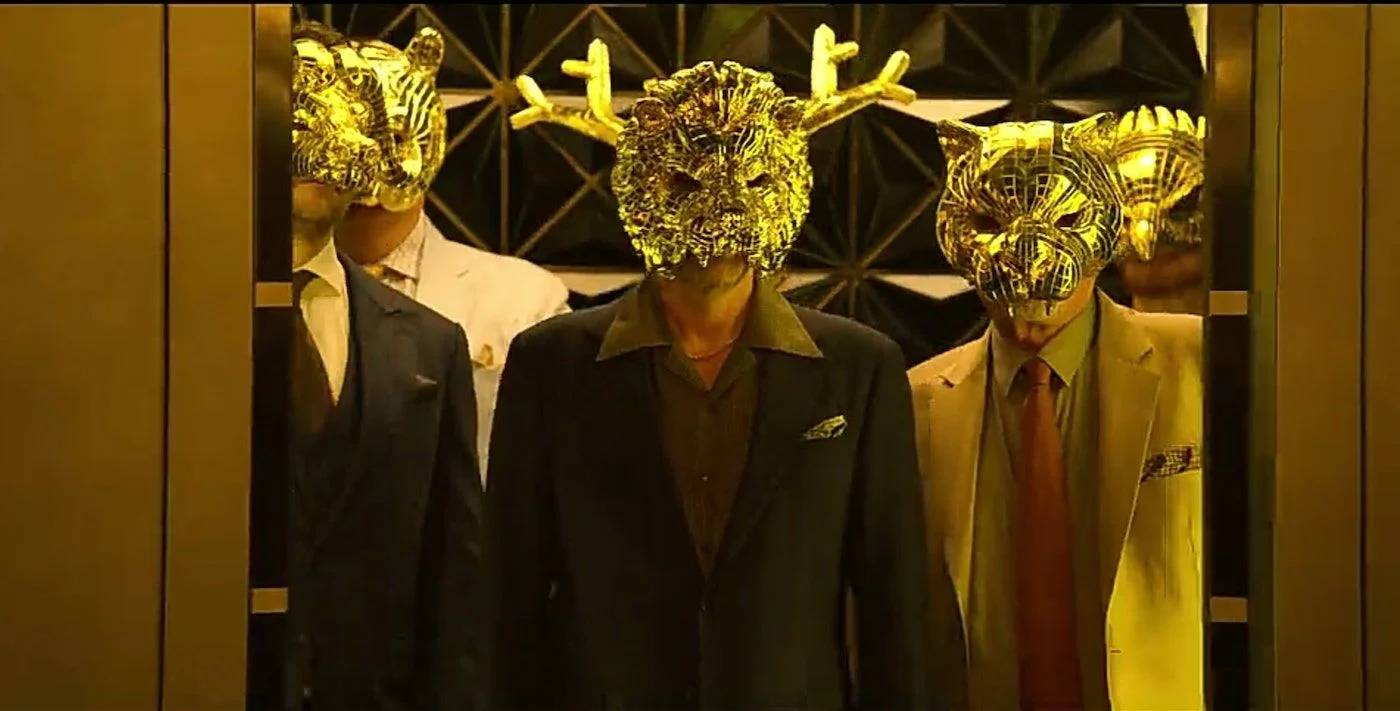Squid Game is a Korean drama on Netflix about competitors in financial distress who sign up to play children’s games in the hopes of winning a large cash reward. The only issue is that if you lose a round, you are “eliminated” – that is, you are dead. The contestants do not wear masks, whereas the staff do.
Why Do The Characters on Squid Game Wear Masks?
The Squid Game is a tournament held on a remote, private island and organized by a select number of elite athletes. The competitors in the Squid Game engage in children’s games that aren’t ordinarily deadly, but the rules have been modified so that anyone who loses a game is “eliminated,” meaning they are killed on the spot. Over 400 people sign up to play the Squid Game, but only one is supposed to make it to the end (and that person receives a huge sum of prize money).
Because the Squid Game is blatantly illegal, the persons who run it wear masks to maintain their anonymity and escape legal repercussions. They don’t want the general public to know who they are, and they don’t want the contestants to know either, in case they win, escape, or somehow end up in a position where they can inform the rest of the world about the Squid Game and the people who run it.
However, there is a psychological reason why the persons in charge of Squid Game wear masks, and why it is against the regulations for them to remove their masks at any time. The contestants have no idea who is coming up with these twisted versions of children’s games, or who is prepared to pay such a large sum of money just to see a lot of desperate people die, which adds to the eeriness of the “bad guys” in Squid Game. The fact that we don’t know who these people are or what motivates them makes their actions much more terrifying. The Front Man appears to be aware of this, instructing a worker not to remove his mask in front of the participants because “once they know who you are, you lose everything.”
The contestants are not the only ones affected by the psychology of the masks; the staff, the Front Man, and the VIPs are all affected. Each morning, before coming out of their respective bedrooms, the workers are expected to put on their masks and uniforms in order to remain anonymous even to the other workers. As a result, it is more difficult for workers to build interpersonal relationships with one another or to determine who they can and cannot trust. Workers are placed in a situation where they feel utterly alone and must police their own behavior because they never know who or what someone else believes.
Front Man Mask
The Front Man wears a completely different mask than the horde of laborers who follow him. For the majority of the season, it appears that the Front Man is in charge. Even though he has control over both the staff and the contestants, it is evident that he is putting on a show for the VIPs. In actuality, the Front Man is also known as the evasive “host,” whose true identity is unknown until the season’s end.
Because the Front Man is effectively second-in-command, it’s only natural that he wears a unique mask. His mask is black and angular, and when he wears it, his face resembles that of a robotic video game character. His mask has no white features that identify him from a worker. The Front Man, like the laborers, is dressed in a black uniform. Despite being outwardly distinct from the employees, the Front Man wears a full suit and mask to conceal his true identity from the candidates.
Unmasked Characters
The contestants on Squid Game do not wear masks, but other precautions are made to obscure their identity to some extent. The contestants all wear the identical uniform, with the exception of the number that is printed on the uniform. The workers only refer to the participants by their numbers, not their names, to further obscure their identities. The contestants do not have names in Squid Game, despite the fact that they occasionally call each other by name.
Despite being stripped of some aspects of their identity, the contestants do not wear masks. This exposes the participants to some risk because others can see exactly who they are and will not mistake them for someone else.
One of the VIPs pulls a worker (who is actually a cop disguised as a worker) into a secluded room in one scene because he intends to sexually abuse the worker. The VIP asks that the cop-in-disguise remove his mask and reveal his face as part of this power play. Another luxury in Squid Game is the ability to choose when to reveal and when to conceal your true identity, as well as the ability to make this decision for anyone “below” you.
Despite the fact that masks are designed to hide a person’s true identity, the character with the finest disguise was not even wearing one. Player 001 (Oh Il-Nam, the old guy) is the host of Squid Game, but he disguises himself as a contestant to avoid detection. Because he is clothed and acts like a contender, no one guesses he is the host or anything other than a contestant. He stands out from the rest of the contenders as the sole senior contestant, and no one seems to be scared by him. Because they regard Player 001 as feeble, slow, and weak, the other contestants do not expect that he will kill them in their sleep, nor do they fear that he will be extremely competent at any of the games. Also, it makes sense that if one of the players was going to secretly be the host, they would be player number 001 at the end of the show, but none of the contestants suspected anything about Oh Il-Nam based on his number at the time the games were taking place; they apparently just assumed that one person would have to be 001, so there was nothing suspicious about it.
VIP Masks
The VIPs are wealthy guys who have traveled from all over the world to watch the Squid Game. The VIPs watch the games live on a screen in a separate, opulent room, where they are entertained with booze, food, and staff at the same time. They talk to each other about what’s going on in the games (in English, unlike the rest of the characters), and they can even make requests to the Front Man to change the games in particular ways (like to turn the lights off to make a game harder). Their masks are distinctive because they are VIPs—they are finer and more expensive-looking than everyone else’s. Each VIP is dressed in a golden mask with the face of a different animal: a deer, a tiger, a lion, a bear, and a bull. Of course, the gold color most likely represents the VIPs’ affluence. Their masks are similarly angular to the Front Man’s, but the VIP masks appear to be the only ones with openings for their eyes to see through. The laborers and the Front Man are presumably able to see through their masks, but there are no visible eye holes, so their faces are totally hidden. Because they are there to watch, the VIPs appear to have eye holes. The person who is gazing (the possessor of “the gaze”) has power over the person who is being looked at, according to film theory. Because they are watching and wagering on the outcome of the games, the VIPs have influence over the contestants.
The individual animals portrayed on the VIP masks may or may not have significant implications. Because the deer represents the divine, the individual wearing the deer mask could be a religious figure. The tiger is a symbol of power, hence someone wearing a tiger mask could be a politician. Because the bull is a symbol of riches, he could be working in banking or finance. According to legend, Koreans descended from a bear-woman, hence the person wearing a bear mask could be related to royalty or a prominent national figure. However, these are only educated estimates as to which wealthy occupations correspond to which animal’s overall symbology.
The VIPs, like the laborers and the Front Man, keep their “true” identities hidden. The VIPs, on the other hand, are not made anonymous by their masks, as the employees are. Rather, the VIPs are distinguished from one another by their masks, which are all one-of-a-kind. Even if we can’t see their “true” faces or know all of their genuine names, the VIPs and the Front Man retain their individual identities when they’re masked. Identity appears to be a privilege that not everyone has in the warped world of Squid Game. The employees and the Front Man/VIPs are clearly divided into two classes.
Worker Masks
Despite the fact that Squid Game is administered by a small group of exceptional individuals, the games require a big number of workers to keep them running smoothly. These workers are not members of the upper crust; instead, they work for Squid Game’s owners in exchange for money. It is claimed that they are underpaid since some of them attempt to circumvent restrictions in order to obtain additional funds.
Worker masks come in three various styles, but they are all immediately identifiable as such. The workers all wear the same outfit: a red jumpsuit with hood and a black mask with a white shape on the top half that covers their full face. A triangle, a square, or a circle can be seen on each worker mask. Aside from the shape variation, their uniforms are identical. This generates a sense of unity among the workers, making them appear as one cohesive unit rather than a collection of disparate people. Their entire bodies and faces are clothed from head to toe, so nothing can identify them as individuals or even humans. The workers must always wear their masks, and the Front Man even cautions that “once they know who you are, it’s all over.”
On worker masks, the circles, squares, and triangles are drawn in clean, clear white lines, similar to the icons on video game controllers. This creates a visual link between the workers and the children’s games, further removing their individual identities and incorporating them into the greater game environment.
The three varied forms on the worker’s masks reflect three different, classified groups of workers, despite the fact that all workers are plainly classed “lower” than the Front Man and the VIPs.
The “lowest” rated personnel have a circle on their masks. They are in charge of cleaning, serving food to contestants, mopping up blood, removing corpses from the gaming zones, and incinerating the bodies of dead contestants on the island. The circle workers do not even talk unless a superior speaks to them first.
The second level of workers are those with a triangle on their mask. They enforce the game’s regulations, lead the party from one location to the next, “remove” (shoot) participants who lose a game, and maintain general crowd control should things get out of hand. Unlike the circle workers, the triangle workers are at least “above” the contestants in that they can give them orders or even kill them on the spot. In terms of class, the triangles are similar to a police officer or a chain store manager: they enforce certain laws, but they don’t get to set any regulations and don’t have enough ability to change the situation on their own.
Those wearing a square on their mask represent the highest level of personnel. They are in charge of the triangles and circles and can give them orders. To obtain directives from the Front Man, the square employees contact directly with him. They can also view the video being shot on the island. Although the square workers are superior to the contestants, circle workers, and triangle workers, they are still employees.
When a police officer sneaks onto the island and disguises himself as a laborer without anyone noticing, the masks, probably constructed by the host, the Front Man, or others identical to them, backfire. Although getting to the island was tough, once there, it was simple for him to blend in and go undetected for a while. He first disguised himself as a circle, but when he removed the mask from the body of a deceased worker, he switched to a square. He most likely used this opportunity to exchange masks because the square mask would have given him somewhat greater worker privileges. Of course, once the Front Man and his workers saw the police officer’s face without his mask on, they quickly overwhelmed him.

